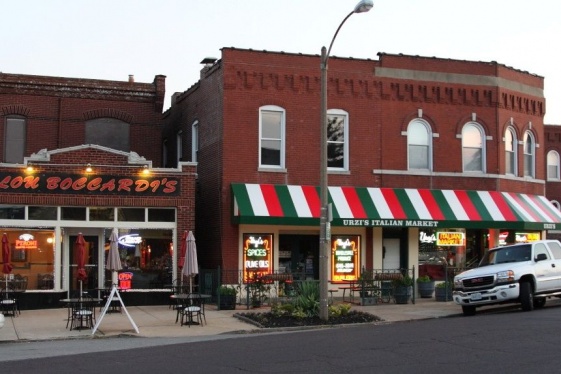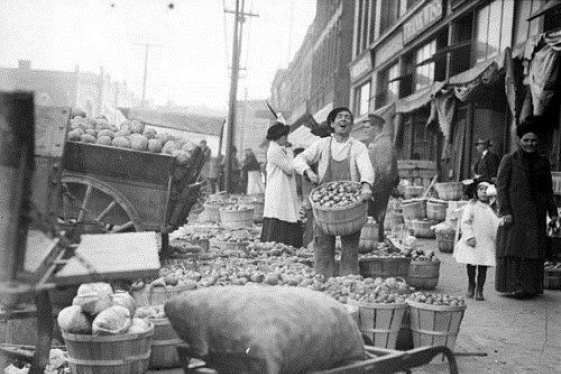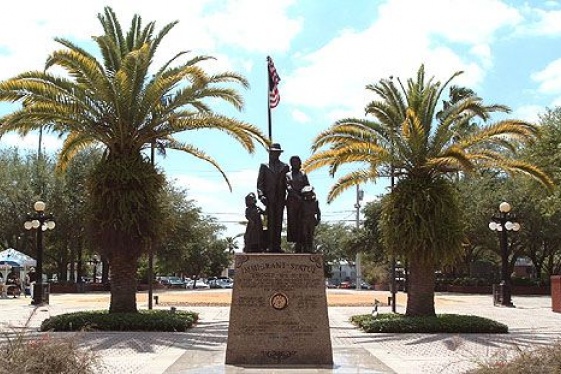
Italian feuds brought immigrants here

Feuding at home brought many Italians to Louisiana in the middle 1850s. A good number of them used ties to the old country to establish themselves in food distribution businesses, first in New Orleans, then across south Louisiana.
Most of the Italians who came here during that era were from Sicily, many of them fleeing after the failure of their second revolt against Italy's rulers. The Sicilians did not like it when Naples and Sicily were merged into one kingdom in 1816. They revolted in 1820 and again in 1848. Each time, the revolts were put down mercilessly.
That meant hard economic times, and many Sicilians decided it might be time to leave. The first ones to go were those with a little bit of money — merchants and tradesmen, mostly from Palermo — who came to New Orleans because they knew Mediterranean produce was shipped to the United States through the port there.
By 1850, according to a study, "Italian‑Americans in South Louisiana" edited by Joel Gardner, New Orleans was the home to more Italians than any other city in the United States, including New York. In one of the essays in the study, James Dorman points out, "The Sicilian merchants ... brought a cultural, social, and economic superstructure from Italy to their new situation."
The merchants brought not only citrus, wine, and other Mediterranean products to Louisiana, but also laborers, who owed loyalty to their sponsoring family. These workers were first employed in the New Orleans produce firms, but were also employed on south Louisiana sugar plantations or on the strawberry farms of the Florida parishes. Labor itself became a major Mediterranean export item.
After the end of the Civil War in 1865, according to the study, "[Italian workers] were systematically recruited by plantation owners, steamship agents, and police juries to take the place of blacks, who left the plantation following the South's defeat."
According to one study, as many as 60,000 Sicilians worked in south Louisiana cane fields during an average season in the late 1880s and early 1890s. These new émigrés worked hard, lived on next to nothing, and saved their money. It took most of them only a few years to save enough to buy their own piece of land or start their own family business.
Grocery stores were among the easiest to begin and operate as family businesses, with the family living above the store. The study notes that in those days Italian families believed the woman's place was in the home, and if she had to work it would be in the family's own business."Consequently," Gardner reports, "when Italian immigrants had family businesses, they really were family businesses. Everyone worked in them — papa, mama, and all the children."
According to Dorman's study, 40 percent of the grocery stores in New Orleans in 1920 were owned by Italian families. That pattern spread throughout south Louisiana, as the first generation established itself in stores and wholesale establishments. That in turn paved the way for succeeding generations to select professional careers as well as to continue established family businesses.
by Jim Bradshaw
You may be interested
-
“The Hill” St. Louis’ Little Italy
When the fire hydrants begin to look like Italian flags with green, red and white stripes,...
-
An Unlikely Union: The love-hate story of Ne...
Award-winning author and Brooklynite Paul Moses is back with a historic yet dazzling sto...
-
Lecture Series: Dual Italian Citizenship
Tuesday February 3rd, 2015 6-7 pmAmerican Italian Cultural Center537 S Peters St, New Orle...
-
Polisena delivers address as state lawmakers...
"Italian-Americans came to our country, and state, poor and proud," Johnston Mayor Joseph...
-
The “Little Italies” of Michigan
In doing reseach for this post, I was sure that Italian immigrants found their way to Detr...
-
Ybor City – Florida’s Little Italy
"The people who had lived for centuries in Sicilian villages perched on hilltops for prote...
-
''La Gente di Mulberry Street'' presentato a...
Valsinni- Italia, terra di emigranti. Presentato a Valsinni il nuovo saggio storico di Raf...
-
'A better life': Cayuga Museum showcases Ital...
When Cayuga Museum Executive Director Eileen McHugh was approached by a group of Italian-...










